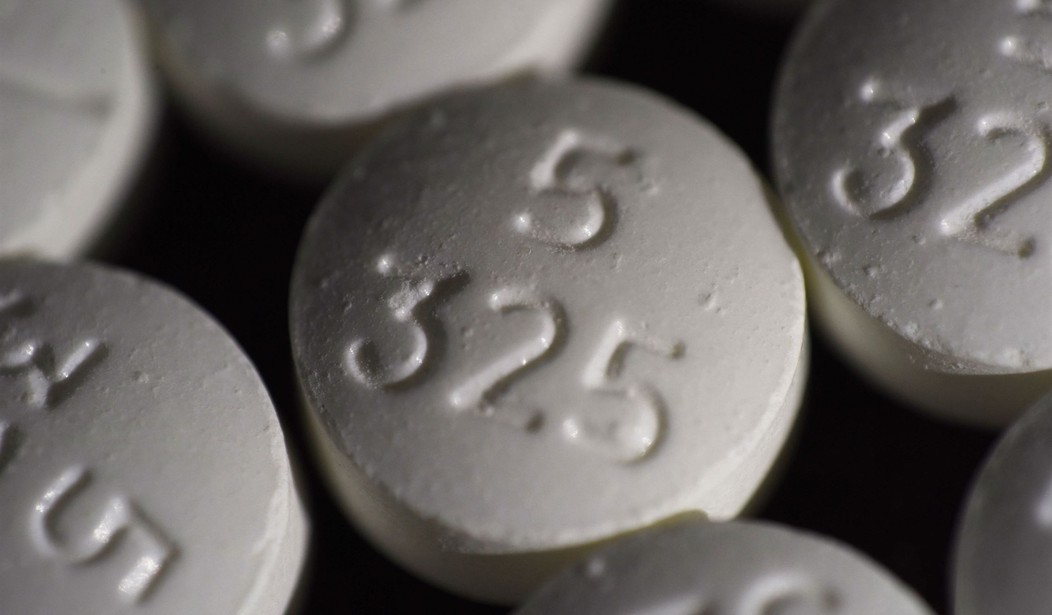While nothing has been finalized yet, the New York Times is reporting that a deal may be near that would end thousands of lawsuits against three of the nation’s largest pharmaceutical distributors and pharmaceutical giant Johnson & Johnson. The suits deal with the crisis of opioid addiction, overdoses and the other problems associated with such drugs around the country. The numbers being tossed around are staggering, estimated to be in the $26B range. Much of the money would go toward funding addiction recovery and prevention services. And, of course, a large chunk would go to the lawyers. While both sides sound as if they may be as satisfied as is possible under the circumstances, I can’t help but feel that we’re watching the imprisonment of the wrong suspect in this complicated game of legal tug-of-war.
The three largest pharmaceutical distributors and Johnson & Johnson are on the verge of a $26 billion deal with states and municipalities that would settle thousands of lawsuits over their role in the opioid epidemic and pay for addiction and prevention services nationwide.
An agreement could be announced later this week, although several people with direct knowledge of the talks cautioned that there were still details being negotiated.
The settlement would not conclude all of the multifaceted nationwide opioid litigation but would end legal action against some of the companies with the deepest pockets in the pharmaceutical supply chain: the country’s major medical distributors, Cardinal Health, McKesson and AmerisourceBergen, along with the pharmaceutical giant Johnson & Johnson.
I’ve been having a hard time figuring out precisely what crime or at least “fault” any of the four companies are being accused of and forced to atone for. I absolutely agree that we have a crisis in terms of the number of people who are addicted to these types of drugs and many lives have been ruined or ended as a result. But I’ve yet to see a single example of Johnson & Johnson producing and selling a drug that hasn’t been approved by the FDA. As for the distributors (Cardinal Health, McKesson and AmerisourceBergen), their role in all of this is to obtain the drugs from J&J as needed and fill orders from doctors, pharmacies, and whoever else is authorized to place such orders.
If the distributers had been selling opioids to unauthorized individuals or companies for illegal sales, there would obviously be a problem. Or if the drugs were somehow faulty and unsafe when used as directed by a doctor, J&J would surely hold some blame. But nothing of the sort has been mentioned. So what is it exactly that makes these four companies liable for laying out that much money, even if the cash is going to some noble causes?
In the end, isn’t it the responsibility of the doctors to monitor how many prescriptions they write? One suggestion of wrongdoing on the part of the defendants is offered in this sentence. “The distributors, which by law are supposed to monitor quantities of prescription drug shipments, have been accused of turning a blind eye for two decades while pharmacies across the country ordered millions of pills for their communities.”
But at no point is it mentioned that the distributors failed to monitor the quantities that were being ordered. They made that information available as legally required. So the implication is that they should have been able to act as mindreaders and know that the pharmacies were ordering “too many” of the drugs? If that’s actually the case, then weren’t the pharmacies at fault? But yet again, they order the amount they need to fill the prescriptions written by doctors. None of this makes sense.
One clue might be found in this detail of the pending settlement as reported by the Times. (Emphasis added)
Unlike earlier settlement proposals, this one appears to have the critical backing of more than 40 states and a sweetener of $2 billion for plaintiffs’ attorneys. In recent weeks, many terms were nailed down and the fees for private lawyers in the cases — a previous sticking point — bumped up, prompting enthusiasm that an announcement was imminent, lawyers involved in the talks said.
Ah, I see. Regardless of pesky issues about right and wrong or who is actually responsible for anything, a couple of billion dollars for the lawyers bringing the lawsuits can smooth things over, I’m sure. Something really stinks about this case. But as with most things in our court system these days (just as with politics) you always need to follow the money.







Join the conversation as a VIP Member